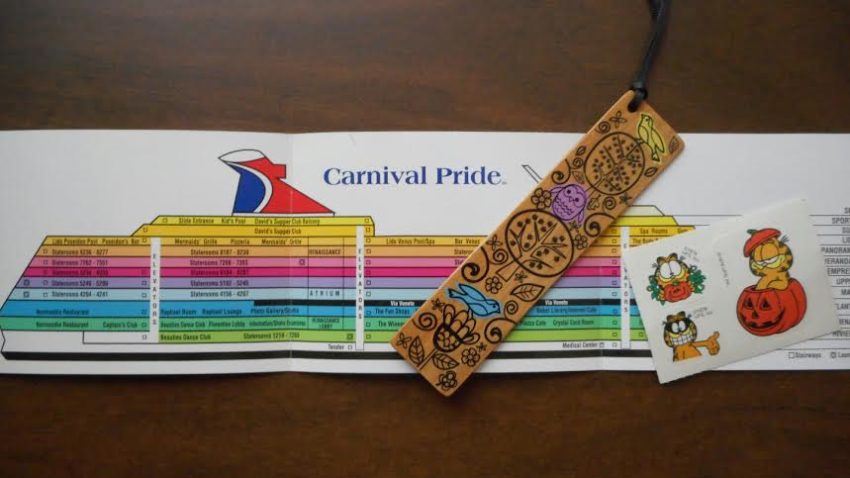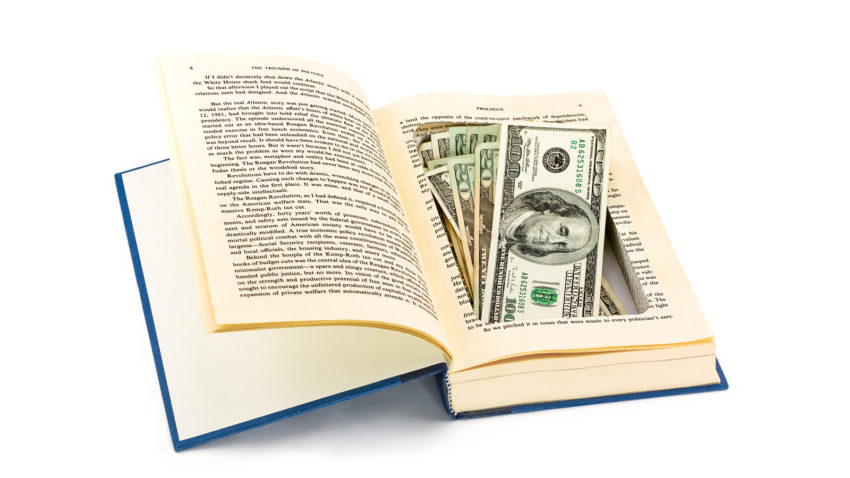
The college semester is almost over! Time to have some fun and take that exotic trip you’ve been dreaming about the whole year.
But wait! Hold on! There’s a problem…
How are you going to pay for your vacation activities?
If you’re like a lot of college students, your vacation fund is probably a little… sparse at the moment. That’s understandable. College is expensive and between dorm room fees and food costs (not to mention those expensive textbooks!) your expenses have been draining your wallet for the last few months.
Fortunately, there’s a quick and easy way to raise some money before your vacation time starts – and it can be done anytime, anywhere with minimal expenses.
It’s called selling books online with Bookscouter.
Making Money for Vacations with Bookscouter
If you’re already a subscriber to my blog, you’ll know that most of my articles show readers how to generate a steady source of income by selling books online using Bookscouter, a free price comparison website that reveals which book buyback companies will pay the most for your used books.
What’s cool about this unusual way of making money is that it can also be done on the short term – for people who aren’t necessarily interested in making a career out of online bookselling, but do want to earn a few hundred (or even a few thousand) dollars to pay for upcoming holiday expenses.
Because selling books to book buyback companies allows you to immediately sell (and profit) from all the used books you buy, you don’t have to invest any time, money, or space into storing your books and waiting for them to sell (which you would need to do if you tried selling them on Amazon).
Instead, you just pack your books carefully, ship them out (using pre-paid shipping labels supplied by the buyback companies), and wait for your payment to be deposited into your PayPal account (usually in two weeks or less).
This is a fantastic way for college students to sell their textbooks for extra cash – plus since this is peak buying season for buyback companies if you go on Bookscouter right now, you’ll likely find a lot of great offers for your books (I personally recommend selling your books to Textbooks.com, Sell Back Your Book, Cash4Books, and/or Valore – they give good prices and fast, reliable payment).
For those of you who want to earn some serious vacation money (as in a few thousand), buying cheap used books and selling them immediately using Bookscouter is the best way to build a vacation fund short-term.
I have personally known people who used this method to raise enough money in a couple months to pay for an African safari. I myself have used this method to take trips to Disneyland, pay for Christmas gifts, and enjoy extra-long weekends hanging out with friends.
If you’d like to read a detailed explanation of how to use Bookscouter to make extra money selling books online, please read How to Make Extra Money Every Day “Flipping” Books Online. For now, however, I’d like to offer the following tips for using Bookscouter to raise money on the short-term.
Tip #1: Start Saving Money For Your Vacations Early
Considering that I’m writing this article at the beginning of December, this tip might not seem helpful now, but it is true that if you start selling books online early in the year you can raise a tremendous amount of money by your next vacation time.
I personally say you should start selling books online right now – and definitely when January comes around. This is peak buying time for a lot of book buyback companies (so you’ll enjoy higher-than-normal prices for your books).
Frankly, if you start investing just a few hours a week right now selling books online with Bookscouter, you can probably still raise some money for some holiday activities – and you’ll definitely have plenty of extra cash on hand when Spring Break and summer vacation come around.
Tip #2: Keep to a Bookscouting Schedule
Professional online booksellers like me can spend four or five days a week (or more) searching for profitable books at thrift stores and library sales.
Obviously you don’t want (or need) to invest this kind of time if you’re just selling books online short term – but it definitely pays to make and keep to a set schedule when you’re searching for good books to sell.
Make this schedule something you can stick to easily. For instance, if you pass by some thrift stores when you’re commuting to school or work, you can make it part of your regular schedule to spend a half hour searching through their bookshelves.
Alternatively, you can invest one day out of your week to check out all the thrift stores and library book sales in your area until you raise enough money for your vacation. You’ll be surprised how quickly this allows you to earn money — especially if you keep an eye out for sales.
Tip #3: Set a Goal for How Much Money You Need to Fund Your Vacation
How much money do you need for your next vacation? $500? $1000?
Work out all of your vacation expenses in advance – and then estimate how long it’ll take you to earn that much money based on the type of books you’re finding and selling.
Setting a goal will help motivate you to keep using Bookscouter until you’ve raised enough money for your trip and/or activities – and give you an idea of how much time you’ll need to invest to reach your target figure.
Keep in mind that not all of your book hunting days are going to be super-profitable (I’ve earned as little as $30 and as much as $300 shopping at the same thrift stores on different days), so you’ll need to keep that in mind when creating a time table.
That said, if you’re consistently not finding enough books to sell at your usual shops, you may want to check other libraries and thrift stores to see if they offer better books that can help you raise money quicker.
Tip #4: Keep a Separate Vacation Account
Once the money starts rolling into your PayPal account, it’ll be tempting to spend that extra cash immediately on a new pair of shoes or a night out with your friends.
Resist that urge. If you spend your money as fast as it comes in, you’ll never raise enough money for your vacation.
Keep the money in a safe place – you can keep the cash in your PayPal account, open a new bank account and deposit the funds there, or take out the cash and keep it with you until vacation time comes around.
Optional: Invest in Better Bookscouting Equipment
It doesn’t take much to start making money with Bookscouter – just a cell phone with a good data plan (I recommend Verizon) and a free barcode app you can download from Google PlayStore.
That being said, if you’d like to speed up your search for profitable books and/or find more books to earn more cash, you can invest in a professional barcode scanner.
I recommend the SP-2100 – it’s saved me a ton of time and increased my profits substantially. You can read my entire review of the scanner at Making Selling Books Online Easier with the SP2100 Laser Barcode Scanner.
Optional: Consider Selling Books Online for Trade Credit
If you shop online a lot and/or if you’re raising money to buy Christmas gifts, you can choose to sell your books for Amazon trade credit.
This is a great strategy that’s really reduced my holiday expenses over the last few years. You can learn all about it at my article Should You Sell Your Books for Amazon Credit?
Want to receive more tips and tricks for how to sell books online for extra money? Subscribe to my blog!
Do you have a question or suggestion for a future blog article? Email me at sellbooksfastonline@gmail.com.










